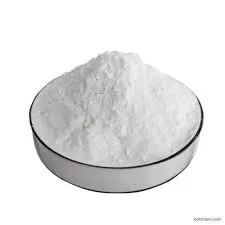- Afrikaans
- Albanian
- Amharic
- Arabic
- Armenian
- Azerbaijani
- Basque
- Belarusian
- Bengali
- Bosnian
- Bulgarian
- Catalan
- Cebuano
- Corsican
- Croatian
- Czech
- Danish
- Dutch
- English
- Esperanto
- Estonian
- Finnish
- French
- Frisian
- Galician
- Georgian
- German
- Greek
- Gujarati
- Haitian Creole
- hausa
- hawaiian
- Hebrew
- Hindi
- Miao
- Hungarian
- Icelandic
- igbo
- Indonesian
- irish
- Italian
- Japanese
- Javanese
- Kannada
- kazakh
- Khmer
- Rwandese
- Korean
- Kurdish
- Kyrgyz
- Lao
- Latin
- Latvian
- Lithuanian
- Luxembourgish
- Macedonian
- Malgashi
- Malay
- Malayalam
- Maltese
- Maori
- Marathi
- Mongolian
- Myanmar
- Nepali
- Norwegian
- Norwegian
- Occitan
- Pashto
- Persian
- Polish
- Portuguese
- Punjabi
- Romanian
- Russian
- Samoan
- Scottish Gaelic
- Serbian
- Sesotho
- Shona
- Sindhi
- Sinhala
- Slovak
- Slovenian
- Somali
- Spanish
- Sundanese
- Swahili
- Swedish
- Tagalog
- Tajik
- Tamil
- Tatar
- Telugu
- Thai
- Turkish
- Turkmen
- Ukrainian
- Urdu
- Uighur
- Uzbek
- Vietnamese
- Welsh
- Bantu
- Yiddish
- Yoruba
- Zulu
Dec . 25, 2024 14:13 Back to list
Effective Antiparasitic Medications for Human Health and Treatment Options
Antiparasitic Drugs for Humans A Comprehensive Overview
Parasites are organisms that live on or in a host organism, gaining nutrition at the host's expense. They can cause various diseases that pose serious health risks to humans around the globe. Antiparasitic drugs are essential for treating these infections, and they come in various classes tailored to target different types of parasites. This article delves into the major categories of antiparasitic drugs, their mechanisms of action, and their application in treating human diseases.
Types of Parasites
Parasites affecting humans can be categorized into protozoa, helminths, and ectoparasites. Protozoa, single-celled organisms such as *Plasmodium* (causing malaria) and *Giardia* (causing giardiasis), require specific treatments. Helminths, or worms, include nematodes (roundworms), cestodes (tapeworms), and trematodes (flukes). Ectoparasites, which include lice and mites, are organisms that live on the surface of the host.
Antiparasitic Drug Classes
1. Antimalarial Drugs Malaria, caused by *Plasmodium* species, is a significant concern in many tropical regions. Key antimalarial drugs include chloroquine, quinine, and artemisinin-based combination therapies (ACTs). Chloroquine works by interfering with the parasite's ability to digest hemoglobin, leading to its death. Artemisinin, derived from the sweet wormwood plant, is highly effective and is commonly used in combination therapies to improve efficacy and reduce resistance.
2. Anthelmintics This class of drugs is designed to treat helminth infections. Common examples include mebendazole, albendazole, and praziquantel. Mebendazole and albendazole inhibit the polymerization of tubulin, affecting the worm's ability to absorb glucose. Praziquantel is particularly effective against schistosomiasis and liver flukes, causing paralysis of the parasites, which can then be eliminated by the immune system.
antiparasitic drugs for humans

3. Antiprotozoals These drugs are essential for treating infections caused by protozoan parasites. Metronidazole and tinidazole are two examples used primarily for infections like amoebiasis and giardiasis. They work by disrupting the DNA synthesis of the protozoa, leading to cell death. Other treatments, such as nitazoxanide, are effective against a range of protozoan infections.
4. Ectoparasiticides For ectoparasite infestations, such as lice and scabies, medications like permethrin, malathion, and benzyl benzoate are commonly used. These agents affect the nervous system of the parasites, ultimately leading to their death. Permethrin is widely used in topical formulations due to its effectiveness and relatively low toxicity to humans.
Resistance and Challenges
One of the significant challenges in the treatment of parasitic infections is the development of drug resistance. For example, resistance to chloroquine has been reported in several regions for malaria, making new research on alternative treatments and drug combinations vital. Furthermore, socioeconomic factors and inadequate healthcare systems can exacerbate the spread of parasitic diseases, creating a need for more effective public health interventions.
Conclusion
Antiparasitic drugs play a crucial role in managing infections caused by various parasites. With the ongoing challenges of drug resistance and the varied nature of parasitic diseases, continuous research and development of new therapies are essential. Public health education and improved access to these medications can significantly reduce the burden of parasitic diseases worldwide. As we move forward, a multi-faceted approach that includes sustainable health systems, innovative drug therapies, and comprehensive education is key to combating parasitic infections effectively.
-
Guide to Oxytetracycline Injection
NewsMar.27,2025
-
Guide to Colistin Sulphate
NewsMar.27,2025
-
Gentamicin Sulfate: Uses, Price, And Key Information
NewsMar.27,2025
-
Enrofloxacin Injection: Uses, Price, And Supplier Information
NewsMar.27,2025
-
Dexamethasone Sodium Phosphate Injection: Uses, Price, And Key Information
NewsMar.27,2025
-
Albendazole Tablet: Uses, Dosage, Cost, And Key Information
NewsMar.27,2025













